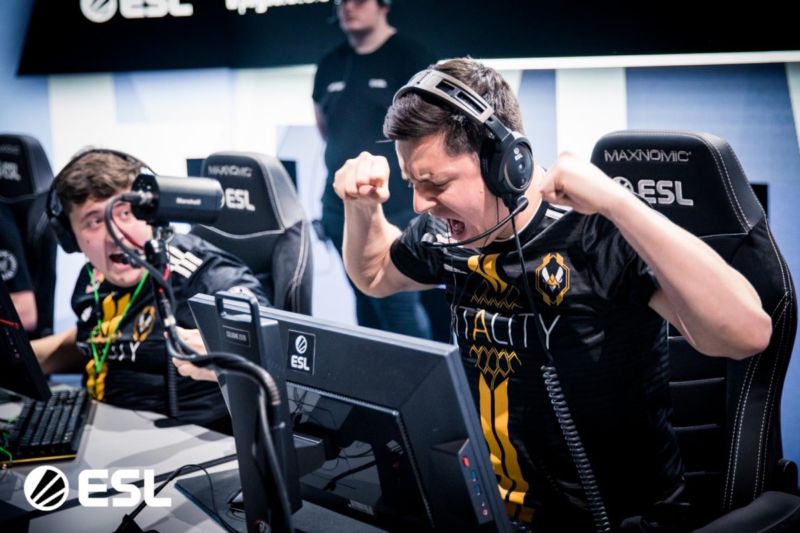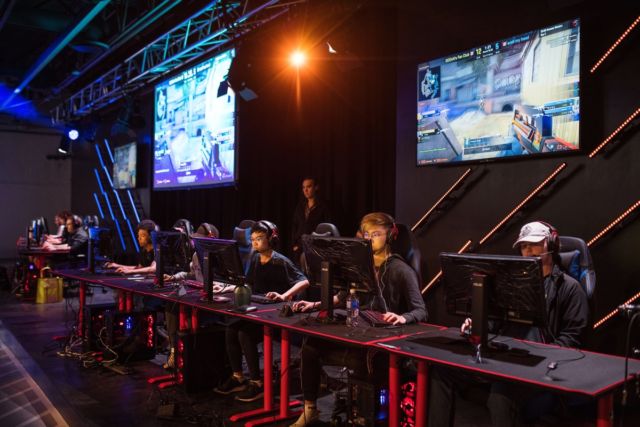Under pressure –
Researchers interviewed seven elite players ofCounter-Strike Global Offensive.

Enlarge/A new study by researchers at the University of Chichester in England found that esports players who compete in major tournaments face the same level of stress as pro-athletes.
ESL / University of Chichester
Professional athletes at the highest level regularly contend not only with fierce competition from opposing teams or individual athletes but also intense psychological pressures, ranging from performance anxiety, fear of failure, and tensions resulting from miscommunication, particularly in team sports. Professional gamers competing in major esports competitions experience the same kinds of stressors, according toa new psychology studypublished in the International Journal of Gaming and Computer-Mediated Simulations.
Sports psychology has long been an active field, but applying it to esports is a relatively new area of research, one that the University of Chichester in the UK is embracing with its newly launched BA (Hons) esports degree. The program focuses on the scientific study of the physical and psychological impact of esports, including nutrition, coaching, and strategy in an immersive gaming environment, according to co-author Philip Birch, who specializes in sports and exercise performance psychology.
This is thefirst studyof its kind, per Birch. The objective was to gain a clearer understanding not just of the stresses esports players face but also the coping strategies they use to deal with those stressors. Birch and his colleagues decided to focus onCounter-Strike: Global Offensive(CSGO) because it is similar to physical team sports like football or rugby. It’s a multiplayer first-person shooter game that pits two teams against each other: Terrorists and Counter-Terrorists. The Terrorists try to plant bombs or take hostages, for example, while the Counter-Terrorists strive to defuse those bombs and rescue any hostages, as both sides try to eliminate the other. Players who do well are rewarded after each round with in-game currency; those who screw up can incur penalties.
The winning team takes home the prize pool. Prize pools forCSGOcompetitions range from $ 75 , 00 0 to as much as $ 1 million. More than 380 million people watched esports competitions in 2018 alone, according to the authors, and it’s becoming increasingly professionalized, including the formation of a trade union for players in 2015. As esports has grown into a nearly $ 1 billion enterprise, so has interest in exploring the psychological factors affecting game play.
In fact, in 2016, oneCSGOelite team, Astralis, actually hired a sports psychologist to help its members cope with the psychological pressures of competing in such a high-stakes environment. Astralis went on to win the ELEAGUE Major in January 2017, and members credited the team psychologist with improving their ability to cope with the competitive pressures. The use of sports psychologists by esport teams is likely to become more common, and that means more research like that conducted at Chichester is needed to provide an evidence-based foundation.

Enlarge/Gamers compete in a Valve Corp. Counter-Strike: Global Offensive esports tournament at the Gaming Stadium in Vancouver, British Columbia, on July 14, 2019.
James MacDonald / Bloomberg / Getty Images
“We thought [the study] was a good opportunity to see how esports players cope in front of live audiences and how they get along as a team,” Birch told Ars . Many elite teams are more like families, often rooming together as well as training and competing inCSGOtogether. “Sometimes families get along really well, and sometimes they don’t,” he said. And unresolved tensions can potentially affect overall team performance.
Since this was the first study, laying the groundwork for future research, the researchers adopted more of a qualitative, rather than quantitative, approach. According to Birch, the qualitative nature of the study was better suited to an initial exploration of the various stress factors and coping mechanisms common to esports players. Future studies might opt for a more quantitative approach, although that would require many more participants.
The sample size is admittedly small, involving seven elite male players competing at the ESP PremiershipCSGOSpring finals. The players had between two and six years’ experience in competitive esports. Lead researcher Matt Smith attended an esports competition to better understand both the gameplay and the competitive environment, and he used that knowledge to develop the interview guide used in the study. Interviews were conducted by Skype within three weeks of the competition and were transcribed verbatim for later analysis.
Birchet al. concluded that esports players faced 51 different stress factors, most notably team communication problems and anxiety about competing in front of live audiences, akin to stage fright. Those are the same stressors typically experienced by professional sports athletes competing at the highest levels. Communication issues included players not listening, or not following instructions, or aggressively negative (often profane) verbal criticism from the in-game leader (IGL) during gameplay.
“His way of motivating players is to destroy them,” one study participant said of an IGL in one of the milder examples. “He said to me, ‘You are so stupid, and so dumb, and so incapable of doing anything that once you go into the real world you’ll find it too difficult.'”
Enlarge/Researchers found esports players faced 51 different stress factors — including worries about competing in front of live audiences.
ESL / University of Chichester
Other internal team issues included lack of confidence in one’s teammates — especially in terms of maintaining emotional control under pressure — and being overly risk averse for fear of failing and letting down the team. Some players are more focused on besting their individual scores rather than increasing the team’s performance as a whole, and tensions arose when some team members didn’t take practice sessions seriously.
External stressors included trash talk from opposing teams, social media attacks, and the anxiety associated with playing a fast- paced, high-pressure game in front of a large live audience. “Like, you have whiffed, and you have no idea if the camera’s on you, but in your head, they’ve just watched and it just makes you feel so much worse,” one study participant admitted. Some participants reported feeling stressed over having to do media interviews — particularly players who speak English as a second language.
Birchet al. also identified several common coping strategies employed by esports athletes. These include techniques for managing emotional distress, like taking a break between maps, mentally blocking out the cameras, and trying to get into “the zone” so that one’s sole focus is on the game. Other coping strategies were more oriented to solving problems, such as boosting a flagging teammate’s confidence or having a group discussion after a competition to review what worked and what went wrong. Players may also practice so-called “avoidance coping,” declining media interviews if they are press-shy, for instance, or staying off social media.
As an industry, we’ve known for a long time that stressors on top-level players can negatively affect their performance. “
In addition to the study’s small sample size, Birchet al. acknowledged another shortcoming: there were no female study participants. This was largely because the competition was heavily male dominated; the only women were on the hospitality and production teams. Female gamers are likely to face additional stressors; prior studies have shown that female gamers experience more sexual harassment, for example. The authors hope future research will remedy that omission.
The team would also like to look more closely at extra psychological stressors affecting in-game leaders. Additional studies might also explore how personality traits — like neuroticism, narcissism, and extraversion — can affect gamers’ ability to cope in high-stress competitive environments. “We may be able to infer some predictions from their personality about how they’re likely to respond to certain situations,” said Birch. “And we’d love to get esports athletes to do some kind of training scenario where we try to improve their performance with things like breathing and relaxation techniques.”
“As an industry, we’ve known for a long time that stressors on top-level players can negatively affect their performance, “said ESL’s chief operating officer, Rob Black,in a statement. “This study proves this and reinforces what we have been saying for years. Further developments are needed in this area, and that will be key in ensuring the number of professional players continues to grow worldwide. ”
DOI:International Journal of Gaming and Computer-Mediated Simulations, 2019.10. 4018 / IJGCMS. 2019040102(About DOIs).






GIPHY App Key not set. Please check settings